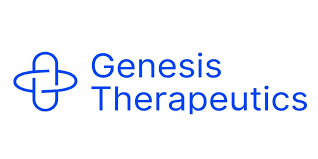Focus
We find, fund and scale startups with transformational tech and market potential in their respective fields.
Deeper tech Paradigms
Our investment strategy is shaped by the convergence of key technological and societal trends:
- The expanding scale and capabilities of computational power, driving innovation across disciplines and industries.
- The radical role of artificial intelligence, enhancing efficiency and enabling transformative advancements.
- The integration of computational technologies with physical systems, including robotics, automated discovery platforms, and nanoscale engineering.
- The cross-disciplinary nature of innovation, exemplified by the convergence of data-driven chemistry and biology, drug discovery, advanced materials development, and robotics.
Propagator Ventures belives that the convergence of these trends will both offer solutions to humanity’s most pressing challenges and the potential for superior economic returns. Our investment theses, responsive to the evolving nature of the tech landscape and the broader economy, center on the domains outlined below
THE FUTURE OF COMPUTE
Core Compute Innovations: Novel artificial intelligence, quantum computing technologies, hardware and semiconductor advancements, and encryption.
Read more
The future of technology—across nearly every industry—hinges on the capacity to handle vast datasets, train increasingly complex models, and run simulations on a previously unimaginable scale. Foundational computing capacity is the force multiplier that brings once-distant frontiers within reach.
Compute is the engine driving innovation in drug design, robotics, AI and machine learning, materials discovery, and much more. Core compute innovations form a cornerstone of Propagator Ventures’ investment focus. We seek opportunities across a broad spectrum of novel artificial intelligence and machine learning, quantum technologies, and “beyond Moore” advancements in computer hardware and semiconductor physics.
These technological breakthroughs are accompanied by mounting ethical considerations. As computing becomes more deeply integrated into human affairs, fresh approaches to governance, alignment, privacy, and security are imperative. Investing in computing is not a bet on a single technology but on the foundation that reshapes industries and unlocks value from transformative solutions as they emerge and reach market.
NEW MATERIALS SCIENCE
A New Material World: accelerated discovery, development and manufacturing of novel materials and molecules with useful properties and wide-ranging applications.
Read more
From carbon capture to cancer treatments, innovation in materials and molecules is urgently needed to address pressing global challenges. Lighter composites will enhance the efficiency of electric vehicles and aircraft; new battery chemistries promise improved energy production and storage; and nanoscale porous materials are key to more efficient air-cleaning solutions.
Industries and societies increasingly depend on the development of high-carbon-intensity replacement substances and the continuing improvement of medical devices, photovoltaic cells, robotics, transportation systems, semiconductor capabilities, and more.
Historically, materials discovery has progressed at a notoriously slow pace, marked by protracted and costly incremental trial-and-error methods. Today, the field is undergoing significant transformation, driven by advances in computing, robotics, and sophisticated closed-loop automated discovery systems.
These systems, working in tandem with AI and novel engineering techniques, are redefining the materials landscape. They enable faster, more efficient discovery and manufacturing processes, reducing time-to-market for new materials and delivering bespoke solutions across industries.
COMPUTATIONAL MEDICAL INNOVATIONS
Faster Pharma: deciphering complex chemical and biological systems for data-driven innovation in drug development, at speed and scale.
Read more
Advancing drug discovery is critical to improving human health. On average, bringing a new medicine to market takes more than a decade and costs billions of dollars, with only a small fraction of drug candidates surviving clinical trials. Such daunting economics and risks skew research incentives towards lucrative diseases, leaving many conditions—particularly infectious diseases and neglected disorders—without adequate attention.
A host of advances in artificial intelligence, coupled with advanced computational models, robotized lab platforms, and other technologies, is set to improve and accelerate drug discovery, materially changing innovation economics and lowering risks. Data-driven drug discovery approaches also have the potential to channel investments into a broader range of therapeutic areas, improving health equity across patient populations.
The transformative role of computational tools and artificial intelligence in drug discovery gained global recognition with the 2024 Nobel Prize in Chemistry, awarded to Google DeepMind’s AI model for protein structure prediction, and to David Baker for computational protein design.
Backing these new capabilities aligns capital with a highly rational, data-driven approach to drug discovery – one that may ultimately deliver greater returns and meaningful societal impact.
The integration of computational methods and machine learning in medicine is also leading to more accurate diagnoses, personalized treatments, and improved patient outcomes. Beyond drug discovery, these technologies are transforming healthcare operations by enhancing efficiency and enabling innovative approaches to patient care.
Investing in the computational underpinnings of tomorrow’s pharmaceuticals and the reshaped economics of medical innovation positions Propagator Ventures to capture new, high-growth opportunities shaping the future of healthcare.
ROBOTICS AND AUTONOMOUS SYSTEMS
Rise Of The Capable Machines: physical ai driving the advancement of mechanical systems to augment human capabilities.
Read more
The convergence of artificial intelligence and robotics has given rise to “Physical AI,” enabling machines to perform tasks traditionally carried out by humans—from household chores to complex industrial operations. These advancements allow robots to take on roles that are dull, dirty, dangerous, and dear—the “4 Ds” of robotization—thereby improving efficiency, enhancing workplace safety, and reducing operational costs across sectors. Additionally, robotics can mitigate labour shortages, particularly those worsened by aging demographics.
The accelerating adoption of automation, coupled with environmental, social, and governance considerations, supply chain risks, and ongoing skilled labour shortages, highlights the potential of robotics. Applications span manufacturing, logistics, transportation, space exploration, and agriculture, with technologies ranging from drones and medical robots to security systems, defense robots, and service machines.
We believe that investing in robotics and autonomous systems offers a strategic opportunity to capitalize on a rapidly expanding market. These technologies, driven by their advancing capabilities, are set to have a transformative impact on the global economy.









